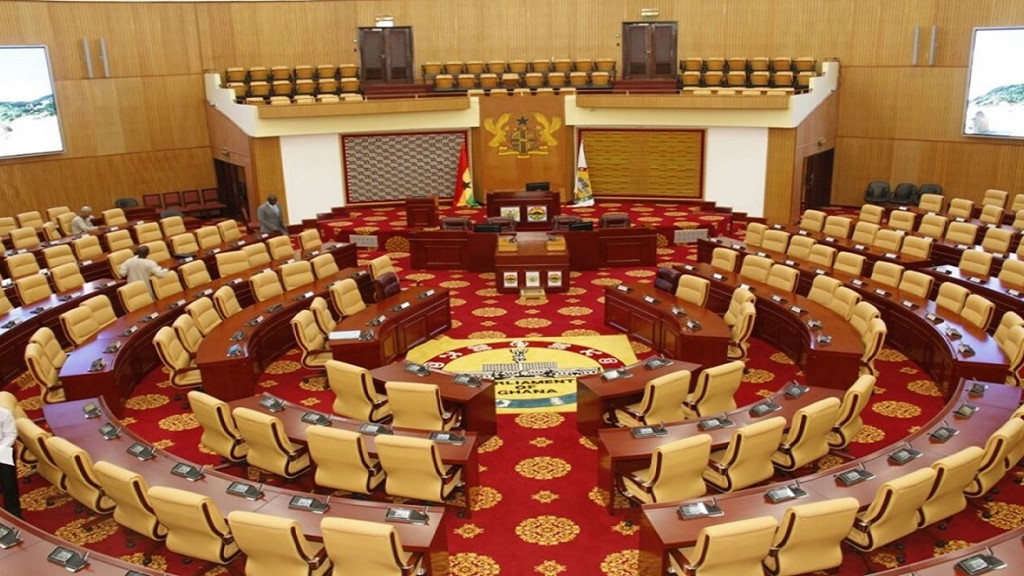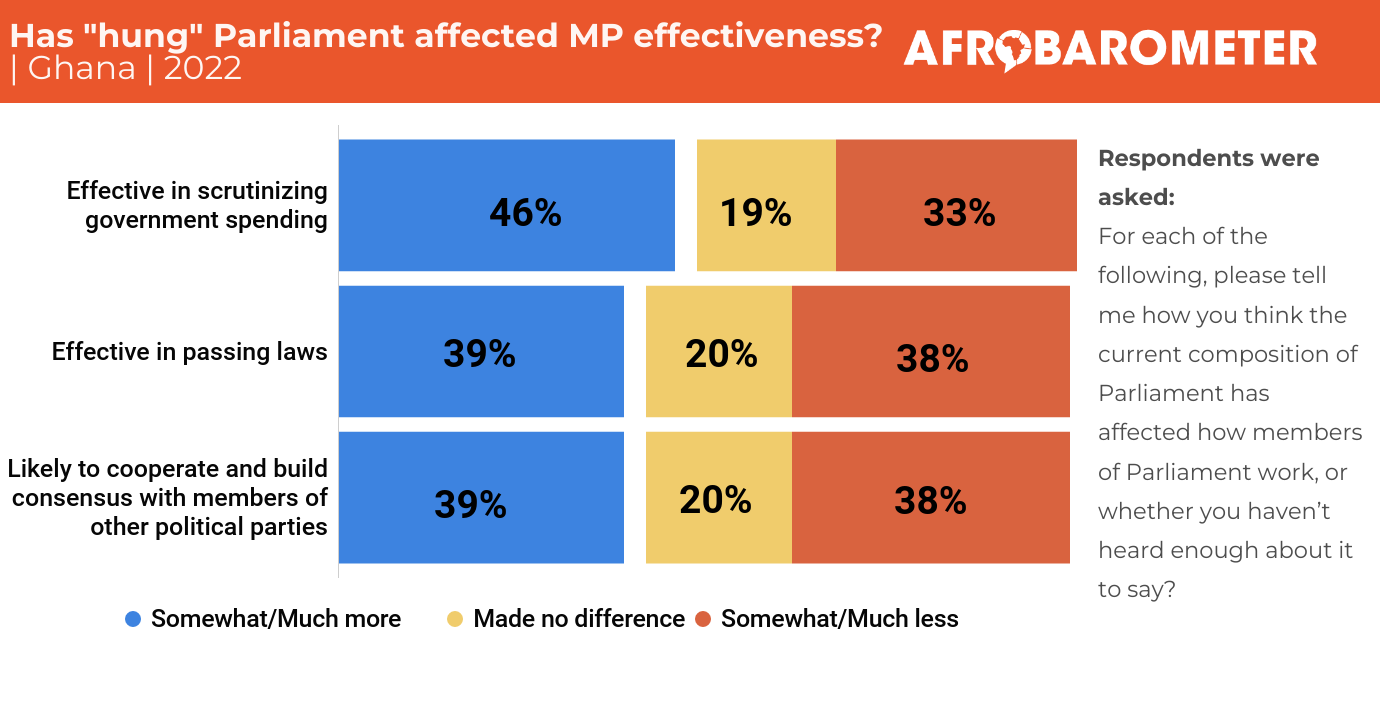
Ghanaians split on impact of current ‘hung’ Parliament - Afrobarometer survey
Almost half of Ghanaians say the country’s “hung” Parliament has made members of Parliament (MPs) more effective at scrutinising government spending, the recent Afrobarometer survey indicates.
But fewer see gains in MP effectiveness at passing laws or building consensus among political parties in the current Parliament, which for the first time is equally divided between the governing New Patriotic Party (NPP) and the opposition National Democratic Congress (NDC).
Survey findings show strong public support for the central role of MPs in making laws and holding the president accountable.
But few citizens think MPs listen to what their constituents say, and most give their elected representatives a negative performance review.
Key findings
- Almost half (46%) of Ghanaians think the composition of the 8th (“hung”) Parliament has made MPs “somewhat more” or “much more” effective in scrutinising government spending (Figure 1).
- But fewer think MPs have been more effective at passing laws (39%) or more likely to cooperate and build consensus with members of other political parties (39%). - Large majorities endorse the role of MPs in a democratic system:
o More than eight in 10 (82%) say Parliament should monitor how the government spends taxpayers’ money, and three-fourths (75%) say MPs should make laws for the country even if the president does not agree (Figure 2). - Ghanaians are divided on who is responsible for ensuring that MPs do their jobs: 38% say it’s the president, while 35% say it’s the voters (Figure 3).
- Most Ghanaians (85%) say their MPs “never” or only “sometimes” listen to what people have to say. Only 14% say parliamentarians “often” or “always” try their best to listen (Figure 4).
- More than two-thirds (71%) of Ghanaians give MPs a failing grade on their job performance over the past year (Figure 5).

Afrobarometer surveys
Afrobarometer is a pan-African, non-partisan survey research network that provides reliable data on African experiences and evaluations of democracy, governance, and quality of life.
Eight survey rounds in up to 39 countries have been completed since 1999. Round 9 surveys (2021/2022) are currently underway.
Afrobarometer’s national partners conduct face-to face interviews in the language of the respondent’s choice.
The Afrobarometer team in Ghana, led by the Ghana Center for Democratic Development, interviewed a nationally representative sample of 2,400 adult Ghanaians in April 2022.
A sample of this size yields country-level results with a margin of error of +/-2 percentage points at a 95% confidence level. Previous surveys were conducted in Ghana in 1999, 2002, 2005, 2008, 2012, 2014, 2017, and 2019.
